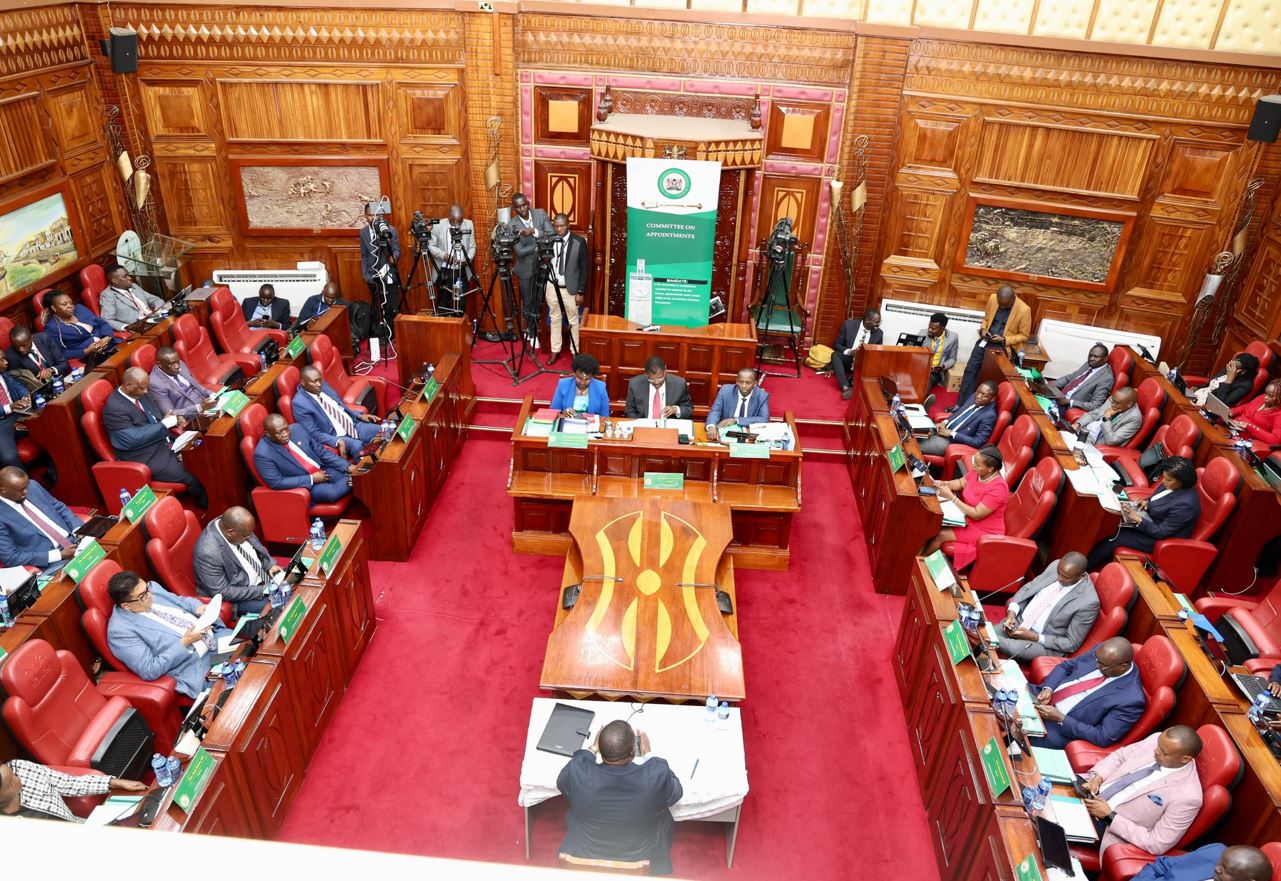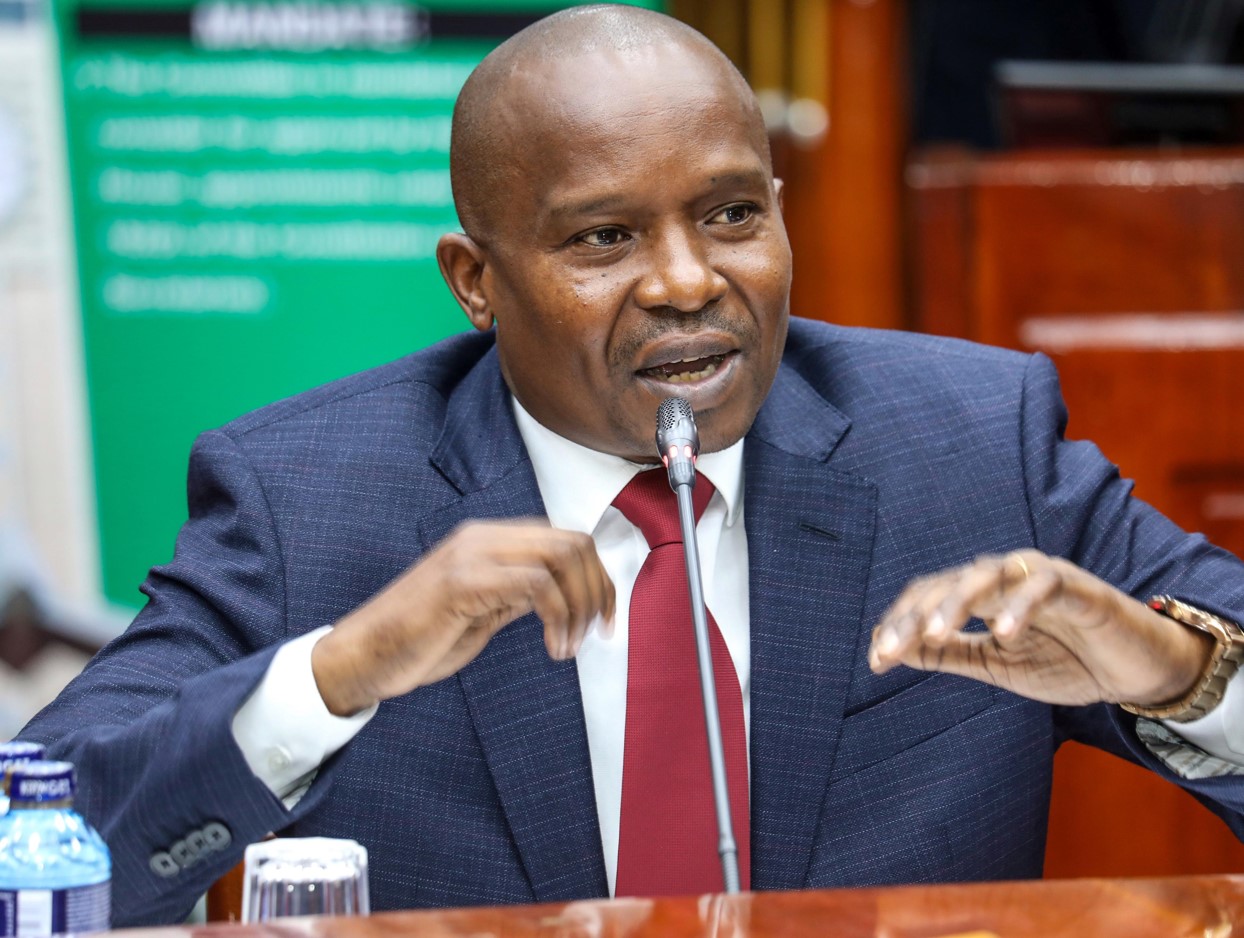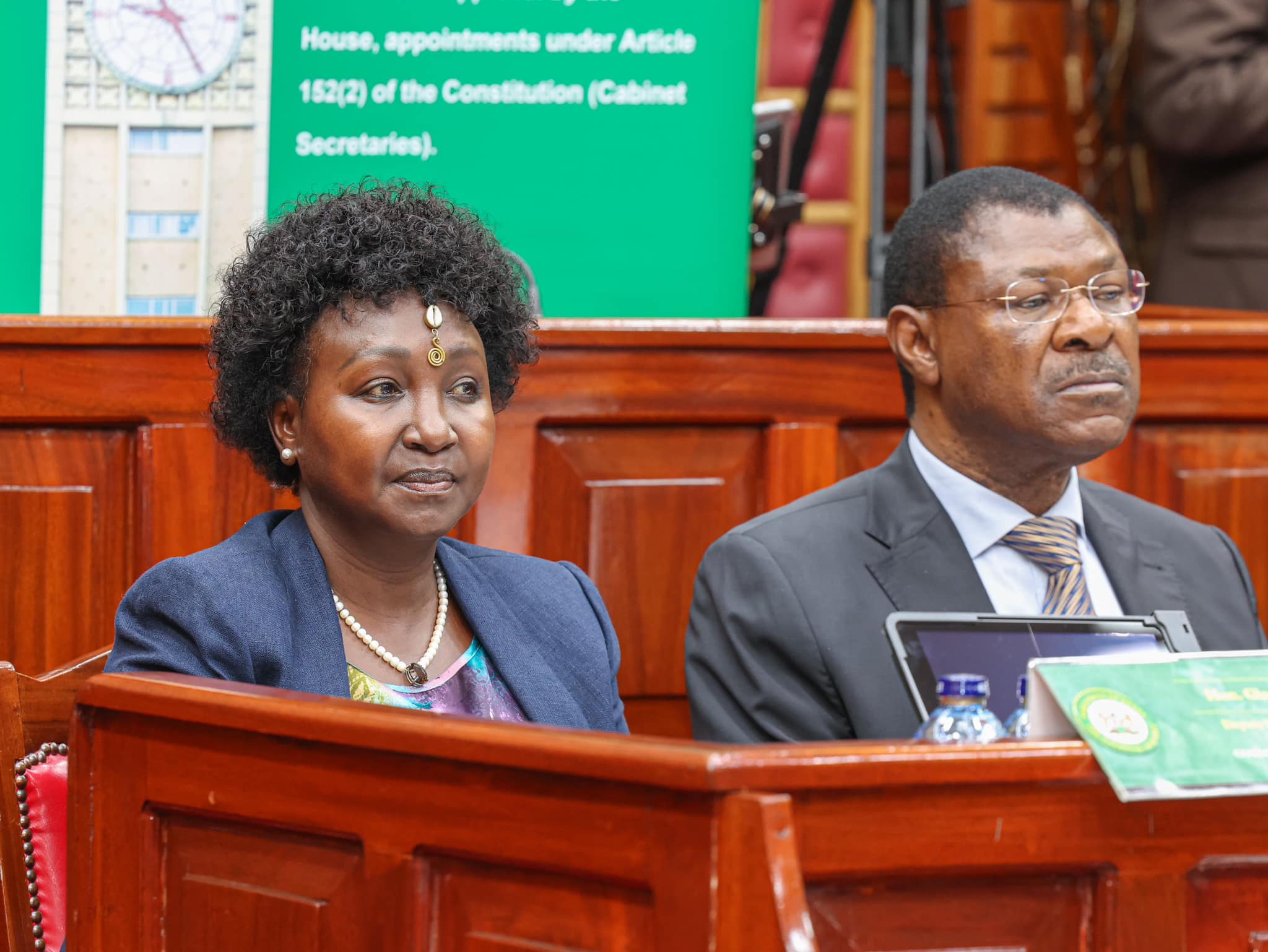Vetting committee fails to probe meteoric growth of cabinet nominees’ wealth

Significant increases in CSs' net worth over a short period have raised concerns about the profitability of public service, compared to the private sector.
Failure by Cabinet nominees to address critical issues during the confirmation hearings that began on Thursday has left Kenyans wondering if the National Assembly's Committee on Appointment is doing its job as expected.
Many have viewed it as an attempt to give President William Ruto’s nominees an easy pass during their vetting.
More To Read
- Gender CS nominee Hanna Cheptumo says women killed in Airbnbs were after money
- Watch: MPs vet Gender, Culture and Arts CS nominee Hanna Cheptumo
- Public Service CS nominee Ruku proposes splitting of TSC powers to curb graft
- Ex-CS Justin Muturi alleges state withdrew his security as form of intimidation
- Nakhumicha rejects claims of Gachagua’s involvement in Sh3.7 billion KEMSA tender scandal
- MPs to vet Ruto's CS nominees Geoffrey Ruku, Hanna Cheptumo on April 14
A significant issue that emerged during the vetting was the unexplored wealth of the nominees, which the vetting committee, led by National Assembly Speaker Moses Wetang’ula, did not probe further, sparking mixed reactions.
One aspect that did not escape the scrutiny of many is the substantial increase in the net worth of nominees who served in Ruto's inaugural Cabinet.
This oversight during the vetting has angered many Kenyans.
For instance, former Interior CS Kithure Kindiki declared a net worth of Sh694 million, up from Sh544 million just 20 months ago, reflecting a Sh150 million growth.
Lands CS nominee Alice Wahome reported a net worth of Sh327 million, an increase of Sh109 million from Sh218 million she declared when she first became CS in Ruto’s administration.
 Interior Cabinet Secretary Nominee, Prof. Kithure Kindiki before the Committee on Appointment at the County Hall, Mini-Chamber on August 1, 2028. (Photo: Kithure Kindiki)
Interior Cabinet Secretary Nominee, Prof. Kithure Kindiki before the Committee on Appointment at the County Hall, Mini-Chamber on August 1, 2028. (Photo: Kithure Kindiki)
Defence CS nominee Soipan Tuya, who was previously heading the Environment Ministry, said her net worth had increased by Sh87 million in less than two years, from Sh218 million to Sh327 million.
These significant increases in net worth over a short period have raised public concerns about the profitability of public service compared to the private sector.
The monthly gross salary of the former Cabinet secretaries being vetted again stands at Sh924,000.
Despite public calls for more stringent vetting, Speaker Moses Wetang’ula, who is moderating the confirmation hearings, criticised the media and Kenyans for questioning the net worth of the nominees, which many see as an obvious marker of suspected corruption.
 Speaker Moses Wetangula and his deputy Gladys Boss following proceedings during the vetting of CS nominees on Saturday, August 3, 2024. (Photo: Parliament)
Speaker Moses Wetangula and his deputy Gladys Boss following proceedings during the vetting of CS nominees on Saturday, August 3, 2024. (Photo: Parliament)Speaker Moses Wetangula and his deputy Gladys Boss following proceedings during the vetting of CS nominees on Saturday, August 3, 2024.(Photo: Parliament)
This failure to scrutinise the nominees with a toothcomb has left many Kenyans calling for tighter oversight and transparency in the vetting to ensure accountability in public service.
During his vetting on Friday morning Aden Duale, who was recently moved from the powerful Defence ministry to the less glamorous Environment docket, revealed his wealth has grown to Sh980 million, up from Sh851 million when he first became CS.
Investments, land appreciation
He attempted to justify this significant increase by attributing it to the appreciation of his land and investments in real estate property and other undertakings.
 Environment CS nominee Aden Duale arrives in Parliament for vetting on August 2, 2024. (Photo: X/Aden Duale)
Environment CS nominee Aden Duale arrives in Parliament for vetting on August 2, 2024. (Photo: X/Aden Duale)
However, Kenyans remain sceptical, especially considering that four out of five vetted former ministers reported an increase of Sh100 million in net worth in just about 21 months.
No nominee could provide a clear and detailed explanation of how they accumulated such substantial wealth in less than two years, fuelling public concern and calls for greater transparency and accountability during vetting.
Kenyans are wondering how businesses owned by the vetted nominees made millions in profits over the past two years, a period when others were closing down or exiting the market due to losses.
According to the Kenya Association of Manufacturers, over 30 companies shut down production plants in Kenya in under a decade, revealing the impact of an uncompetitive tax and business environment and cheaper imports.
The tough economic conditions in 2023 saw the Federation of Kenya Employers warning of job losses as a result of the implementation of the Finance Act, 2023.
The federation said the cost of doing business had become unsustainable, negatively impacting cash flows for many enterprises and thereby affecting payrolls.
Top Stories Today

















































